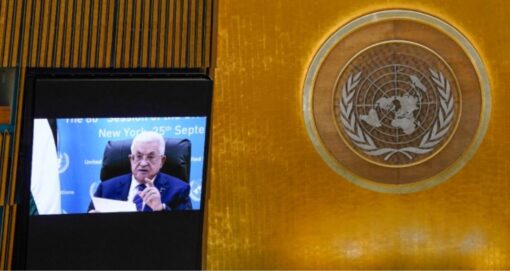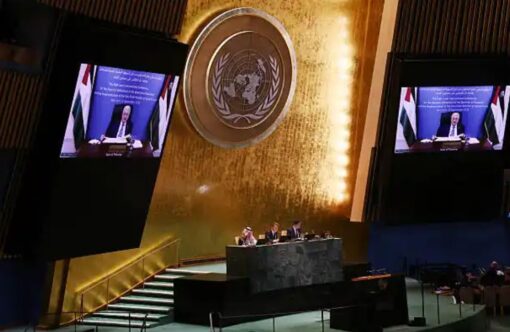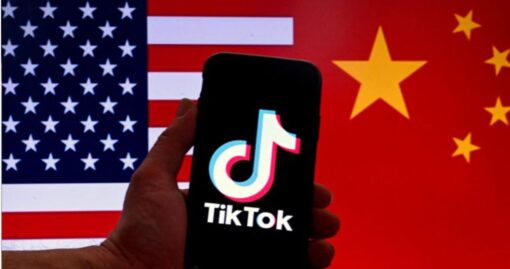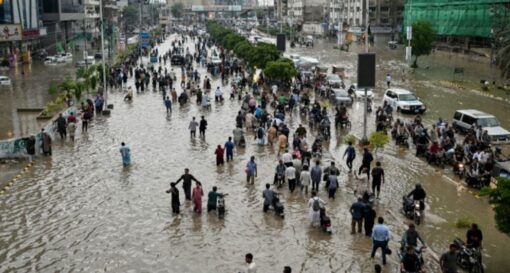Palestinian Authority President Mahmud Abbas used his address to the United Nations General Assembly to send a decisive message about the future of Palestine.
Speaking by video link after being denied a visa by the United States, the 89-year-old leader declared that Hamas would have no future political role in governing Palestine, while appealing to the international community to rally behind Palestinian statehood at a time of mounting fears of Israeli annexation.
His remarks drew wide attention because they sought to address long-standing concerns of Israel, the United States, and Europe while also reasserting the Palestinian Authority’s legitimacy as the representative of the Palestinian people.
Abbas, who has spent decades at the forefront of the Palestinian struggle for independence, made clear that the road forward must exclude Hamas and other armed factions that challenge the authority of his Fatah-led government.
He told delegates that Hamas must lay down its arms and accept that governance belongs to the Palestinian National Authority. “Hamas will not have a role to play in governance. Hamas and other factions will have to hand over their weapons to the Palestinian National Authority,” he declared in remarks that were greeted with strong applause from representatives present at the General Assembly hall.

The veteran leader, who has been under pressure to unify the Palestinian front, used the global platform to put distance between the Palestinian national movement and the October 7, 2023, Hamas attack on Israel.
That assault, which left hundreds dead and resulted in hostages being taken, remains the deadliest in Israel’s history and continues to shape regional politics.
Abbas condemned the violence unequivocally, stressing that such actions run contrary to the values and aspirations of the Palestinian people. “Despite all that our people have suffered, we reject what Hamas carried out on October 7 — actions that targeted Israeli civilians and took them hostage — because these actions do not represent the Palestinian people, nor do they represent their just struggle for freedom and independence,” he said.
At a moment when Palestinian grievances are often dismissed or distorted by claims of antisemitism, Abbas also took care to separate legitimate solidarity with the Palestinian cause from hatred directed at Jews.
“We reject confusing the solidarity with the Palestinian cause and the issue of antisemitism, which is something that we reject based on our values and principles,” he told the assembly.
By drawing this distinction, he sought to undercut one of the central arguments used by Israel’s allies to delegitimize Palestinian demands for independence.
The Palestinian leader also delivered a searing critique of Israel’s nearly two-year military campaign in Gaza, calling it one of the most devastating humanitarian tragedies of both the 20th and 21st centuries.
By placing the suffering in Gaza alongside the most infamous atrocities of the modern era, Abbas aimed to highlight the urgency of global action. He argued that the Palestinian Authority should be placed temporarily in charge of Gaza, a territory Hamas has controlled since 2007, in order to pave the way for eventual reconstruction and reconciliation under international supervision.
His speech came just days after France hosted a special summit in Paris where several Western powers formally recognized the State of Palestine. That wave of recognition was seen as a major diplomatic milestone, but it was quickly rebuffed by Israel.
Prime Minister Benjamin Netanyahu responded with a statement declaring that such recognition “does not obligate Israel in any way,” insisting once again that “there will be no Palestinian state.” Netanyahu’s rejection was predictable, but it underscored the entrenched obstacles Abbas faces even as momentum builds abroad.
In Washington, President Donald Trump has consistently backed Netanyahu’s hard-line stance, opposing Palestinian statehood and supporting expanded Israeli military operations not just in Gaza but across the region.
Yet even as he reiterated opposition to full recognition, Trump appeared to align with European leaders on at least one issue: opposition to Israeli annexation of Palestinian territory.
French President Emmanuel Macron disclosed that Trump privately assured him that Europe and the United States share the same position on blocking annexation, even if they differ on how to move forward with Palestinian sovereignty.
Trump’s involvement in the conflict has been shaped by his personal network as well as official channels. His confidant and golfing partner, Steve Witkoff, now operating as a roving envoy, revealed that Trump had presented a 21-point plan to leaders of Arab and Islamic nations during meetings on the sidelines of the UN General Assembly.
According to Witkoff, the plan was designed to address Israeli security concerns while also meeting the expectations of regional neighbors. Speaking at the Concordia summit in New York, Witkoff expressed confidence that progress was imminent, saying, “We’re hopeful, and I might say even confident, that in the coming days we’ll be able to announce some sort of breakthrough.”
A senior US official also told reporters that the administration was intent on bringing the conflict “to an expeditious close.” That ambition was echoed by European leaders, who see the growing crisis in Gaza as destabilizing not only the Middle East but also global security.
France has circulated its own position paper that dovetails with elements of the American plan. The proposal calls for Hamas to be disarmed, the deployment of an international stabilization force to Gaza, and the eventual transfer of security responsibilities to a restructured Palestinian Authority.
Macron has been vocal about the need for a credible force capable of preventing renewed cycles of violence, and he pointed to pledges already made by Indonesia as evidence of global support.
Indonesian President Prabowo Subianto, who also met with Trump during the week of the UN Assembly, confirmed that his country was prepared to send at least 20,000 troops to such a force. As the world’s largest Muslim-majority nation, Indonesia’s commitment carried symbolic weight as well as practical significance.
Subianto said Indonesia stood ready to support peace and regional stability, reflecting the strong sense of solidarity among Muslim nations with the Palestinian cause.
For Abbas, the UN address was not simply a routine intervention. His government only exercises partial control over sections of the West Bank under the Oslo Accords of the 1990s, while Hamas remains entrenched in Gaza.

The speech was therefore an opportunity to project the Palestinian Authority as the sole legitimate representative of the Palestinian people and to present a roadmap that isolates Hamas, satisfies international demands for disarmament, and reinforces the push for recognition of statehood.
The timing of Abbas’s message was particularly significant because of the growing divide in international opinion. While France and other European nations have pressed ahead with recognition, Israel has doubled down on its refusal, emboldened by Washington’s support.
With Netanyahu scheduled to address the General Assembly on Friday, observers expect him to use his platform to dismiss Abbas’s appeal outright and reaffirm Israel’s uncompromising stance.
For Abbas, however, the speech was about more than diplomatic positioning. At 89, with decades of political battles behind him and questions about succession looming, the Palestinian leader sought to make a definitive statement about the path forward.
By rejecting Hamas, condemning antisemitism, and demanding recognition of Palestinian statehood, he attempted to reset the international debate at a time when Palestinians continue to endure one of the worst humanitarian crises in their history.
The appeal to the UN was as much about rallying global opinion as it was about influencing negotiations on the ground. Abbas knows that without international pressure, Israel is unlikely to change its course.
But by positioning the Palestinian Authority as the responsible and legitimate governing force, he hopes to shift the balance and prevent Hamas’s violent legacy from defining the Palestinian struggle.
As the UN Assembly continues and world leaders deliberate, the Palestinian cause once again occupies the global stage. Whether Abbas’s plea translates into tangible progress remains uncertain, but his speech marked a clear attempt to draw a line between violence and diplomacy, between rejection and recognition, and between fragmentation and unity. In doing so, he placed the future of Palestinian statehood squarely in the hands of the international community.
Meta Description:
Mahmud Abbas tells the UN Hamas has no political future in Palestine, condemns antisemitism, and urges world leaders to support Palestinian statehood amid Israeli annexation threats.


